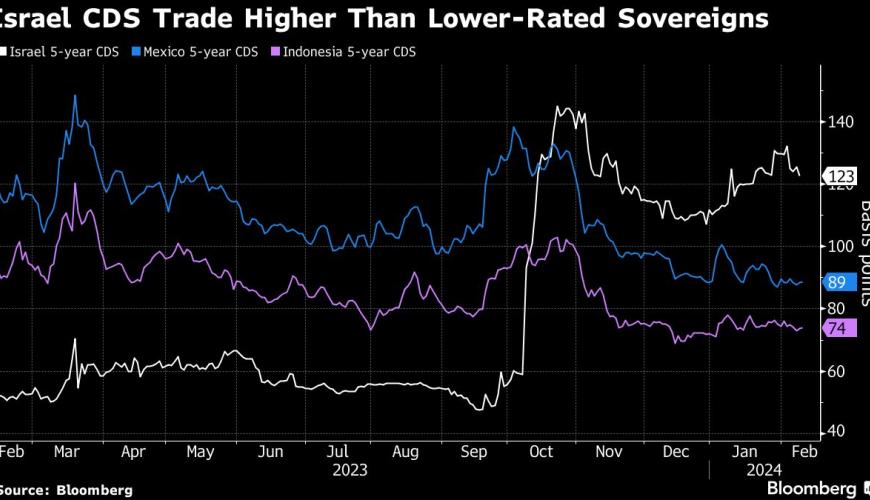Moody's Downgrades Israel's Credit Rating Due to Conflict Impact
- 10 February 2024 2:02 AM

In an unprecedented event, Israel's sovereign credit rating has been downgraded by Moody’s Investors Service, pointing to the ongoing military conflict with Hamas as a significant factor influencing its economy.
The credit rating agency dropped Israel's investment grade by one level to A2, putting it on a par with Poland and Chile and marking the country's first-ever sovereign downgrade. The outlook has also been changed to negative, concluding a review that Moody's initiated in October.
Moody’s anticipates the war and its subsequent influence to notably increase Israel's political risk. They foresee a subsequent weakening of the country's executive and legislative institutions and a diminishing fiscal strength for an undefined future period. The agency predicts a substantial increase in Israel's debt burden when compared to pre-conflict projections.
Responding to the downgrade, Prime Minister Benjamin Netanyahu argued that the decision doesn't accurately represent the country's economic state. "Our ongoing conflict is the sole reason," he stated, displaying confidence that their rating would recover when the war is won.
The military conflict, which started over four months ago, has further strained public finances, plunging the budget deficit deep. The fiscal implications of Israel's most severe armed conflict in half a century have forced the government to increase its debt reliance to pay for the increasing war expenses which are estimated at 255 billion shekels ($69 billion) from 2023 to 2025 by the central bank.
A revised budget for 2024 is awaiting parliamentary approval later this month, proposing a deficit of 6.6% of the GDP. This would mark one of Israel's highest deficits this century, surpassed only in 2020 when significant spending and borrowing were incurred to manage the economic fallout from the COVID-19 pandemic and consequent lockdowns.
Market players had already had the likely downgrade priced in, suggesting it should not significantly affect markets. The cost of insuring against default on Israel's debt for the next five years has now surpassed that of lower-rated nations such as Mexico and Indonesia.
The conflict, initiated by Hamas on October 7th with an infiltration of southern Israeli communities that resulted in approximately 1,400 casualties, has seen Israel retaliate with a campaign causing over 27,000 deaths in Gaza, says the local health officials.
The future of Israel's economy is now largely tied to the containment of the conflict. All three leading rating firms have issued warnings on the government's credit rating since the conflict started. S&P Global Ratings advised on the negative outlook last, on Oct. 25, amid fears of the war escalating. Before this, both Fitch Ratings and Moody’s had already revised the nation’s credit score to negative watch and review for downgrade, respectively.
